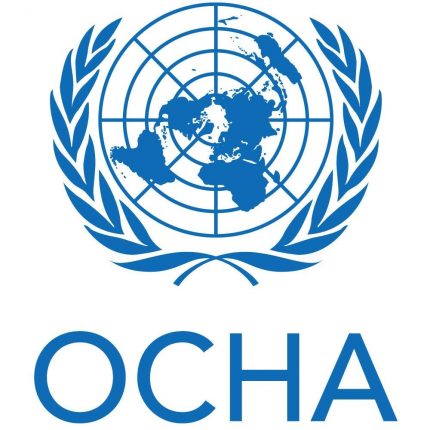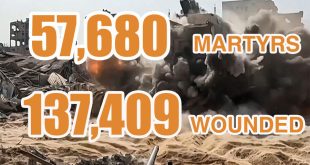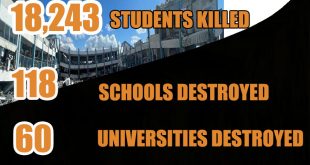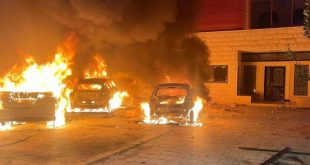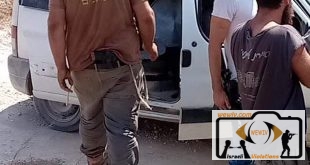During the week, 54 Palestinians, including eight children and two women, were injured across the West Bank in multiple clashes with Israeli forces. During confrontations, Israeli forces fired teargas canisters, live ammunition, rubber bullets, skunk spray, and sound grenades at Palestinians engaged mainly in stone throwing, and, in some cases, hurling Molotov cocktails. The majority of injuries were recorded in the course of three incidents including in Al ‘Isawiya area of East Jerusalem (17) during a search and arrest operation; in the village of Qusra (Nablus) (15), after Israeli forces intervened in a confrontation between Palestinians and a group of Israeli settlers, reportedly triggered by a settler attempt to damage olive trees; and in Kafr Qaddum village (Qalqiliya) (14) during the weekly protest against the longstanding closure of one of the main entrances. Another protest against the resumption of Barrier construction in Beit Jala (Bethlehem) and the related uprooting of trees resulted in the injury of two women and a man.
Israeli forces arrested 98 Palestinians across the oPt, including three in the Gaza Strip. The Gaza Strip arrests include two Palestinian merchants arrested as they arrived at the Erez Crossing, after they had received a permit to travel into the West Bank, and one other Palestinian arrested near the fence surrounding Gaza, after crossing into Israel without Israeli authorization.
Five Israeli settler attacks resulting in injury to Palestinians or property damage were recorded, including the stoning and injury of a six-year-old girl and vandalism to a souvenir shop, both near Al Ibrahimi Mosque in the Israeli-controlled H2 area of Hebron city; the physical assault of a shepherd who was grazing his sheep in Dura (Hebron) and a Palestinian man standing on the road at the junction of Yatma village (Nablus); and the setting of cultivated land on fire in Burin (Nablus).
On 24 August, Israeli authorities prohibited Palestinian access to Al Aqsa Mosque Compound until 11:00am, preventing students from accessing their schools inside Al Aqsa Mosque compound, while facilitating the entry of settlers and other Israeli groups into the compound. There are three schools located within Al Aqsa Mosque Compound, servicing over 500 students.
Four incidents involving stone-throwing by Palestinians at Israeli-plated vehicles travelling in the West Bank were reported by Israeli media, resulting in injury to six Israeli settlers, including a two-year-old child, and damage to two vehicles.
The Israeli authorities demolished 42 Palestinian-owned structures in Area C and East Jerusalem for lack of Israeli-issued building permits, displacing a total of 54 people, including 33 children, and otherwise affecting some 100 others. This is the largest wave of demolitions in a single week in six months. Eighty-eight (88) per cent of the targeted structures (37) were located in four communities in the Jordan Valley (Ad Deir, Khirbet Samra, Fasayil al Wusta, and Jericho city); two structures were located in areas designated by the Israeli authorities as a closed military zone for training, or “firing zone”, in Tubas; and three structures in the Jerusalem governorate in the area of Wadi al Joz (East Jerusalem) and Bir Nabala. So far in 2015, a total of 417 structures have been demolished by the Israeli authorities in the West Bank, including East Jerusalem, displacing a total of 495 Palestinians including 277 children.
In the Gaza Strip, Israeli forces opened fire towards civilians in the Access Restricted Areas (ARA) on land and at sea, on at least four occasions. No casualties were reported. On one occasion Israeli forces entered and leveled land inside Gaza forcing farmers to flee the area.
Two children, 9 and 13 years old, were injured north of Rafah city after stepping on unexploded ordnance (UXO) while they were playing. Since the cease-fire of August 2014, 16 Palestinians, including one child, have been killed in UXO incidents, and over 170, including 24 children, have been injured.
This week, Egyptian authorities exceptionally opened the Rafah crossing between 18 and 20 August in both directions, allowing 2,229 Palestinians into Gaza, and 2,105 Palestinians, mainly patients, students and dual nationals to exit Gaza. The Egyptian-controlled Rafah crossing has been continuously closed, including for humanitarian assistance, since 24 October 2014, except for 29 days of partial openings.

 العربية
العربية עברית
עברית Türkiye
Türkiye Русский
Русский Français
Français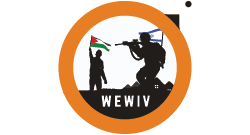 We Watch Israeli Violations Specialized website in monitoring and documenting Israeli violations against Palestinians
We Watch Israeli Violations Specialized website in monitoring and documenting Israeli violations against Palestinians

